Inspections to tighten for imported plants, animals
Updated: 2016-01-12 08:12
By Wang Xiaodong(China Daily)
|
||||||||
Frequent global exchanges raise safety concerns
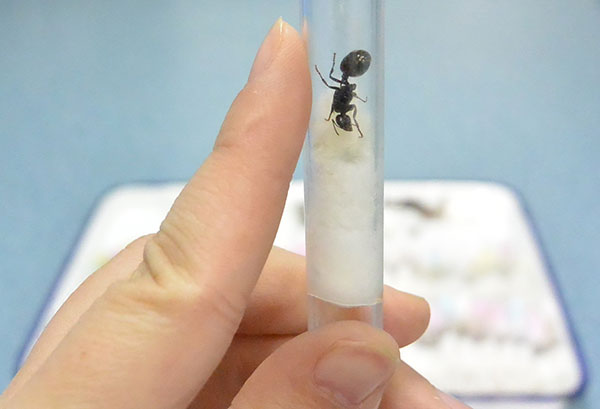 |
|
Test tubes containing 800 black ants were seized by customs officials at the Shuangliu Airport in Chengdu, Sichuan province, in November. The tubes were sent from Hamburg, Germany. Huang Zhiling / China Daily |
China's gatekeepers will intensify inspections and quarantines of animals and plants for import and export this year to cope with increasing challenges of biological safety brought by increasing international exchanges.
Inspection and quarantine authorities across China intercepted 5,788 harmful species in 980,000 batches and stopped them from entering the country last year, Zhi Shuping, minister of the General Administration of Quality Supervision, Inspection and Quarantine, said on Monday.
More than 800,000 batches of such species were intercepted in 2014, an increase of 30 percent over the previous year, according to the administration.
Intensified economic globalization and frequent personnel and economic exchanges between different countries have posed increasing threats, such as infectious diseases and invasion of harmful biological species, Zhi said at a national conference on quality supervision.
The number of harmful species intercepted at China's ports and borders in the past five years was three times more than the previous five years, Zhi said.
"We must build a firm network at the gate to ensure domestic security," he said.
The administration will provide improved devices for inspection of international mail and parcels, and launch special campaigns to crack down on illegal actions, such as tourists crossing the border carrying seeds or sprouts, according to Zhi.
The administration will also improve cooperation with other departments such as agricultural, forestry and postal departments to improve management of the import and export of wildlife to prevent invasion of harmful species, he said.
China bans a number of species from being carried or mailed to the country, including most live animals and fresh vegetables and fruits, to prevent invasion of harmful species and diseases.
Some foreign species may have very strong survival and reproductive abilities and can cause great damage to the ecological system in another country where they lack natural enemies, said Li Weimin, an official for plant inspection and quarantine at the Shaanxi Provincial Entry-Exit Inspection and Quarantine Bureau.
"Failure to inspect for harmful species may also bring great economic loss for a country in foreign trade," he said. "A country's entire crop of apples may be banned from being exported to another country if just one batch is found to contain a kind of mite."
Various species, such as spiders, ants, frogs, plant seeds and reptiles have been intercepted by inspection bureaus at ports and borders in recent years, according to media reports.
In September, Beijing's Entry-Exit Inspection and Quarantine Bureau said it intercepted a dendrobates leucomelas, a yellow-banded poison dart frog, through X-rays of a parcel sent from Hong Kong.
The frog is one of the world's most toxic creatures and is normally found in South America, the bureau said.
- A glimpse of Spring Rush: little migrant birds on the way home
- Policy puts focus on genuine artistic students
- Police unravel market where babies are bought, sold as commodities
- More older pregnant women expected
- Netizen backlash 'ugly' Spring Festival Gala mascot
- China builds Mongolian language corpus
- 2 Chinese nationals killed, 1 injured in suspected bomb attack in Laos
- New York, Washington clean up after fatal blizzard
- 'Plane wreckage' found in Thailand fuels talk of missing Malaysian jet
- Washington shuts down govt, NY rebounds after blizzard
- 7 policemen, 3 civilians killed in Egypt's Giza blast
- Former US Marine held in Iran arrives home after swap
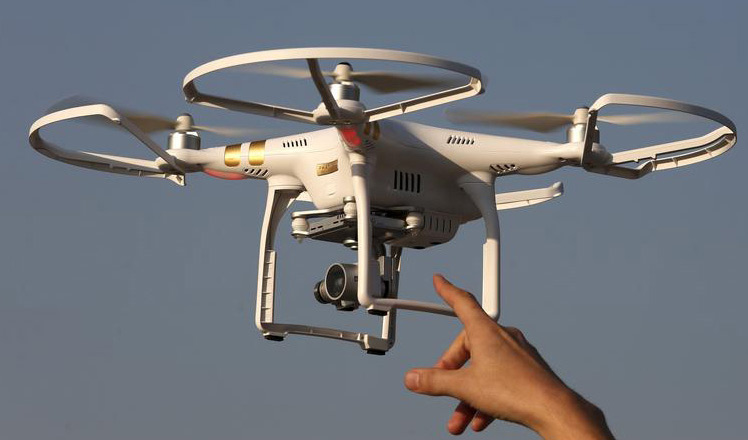
 Drone makers see soaring growth but dark clouds circle industry
Drone makers see soaring growth but dark clouds circle industry China's Zhang reaches Australian Open quarterfinals
China's Zhang reaches Australian Open quarterfinals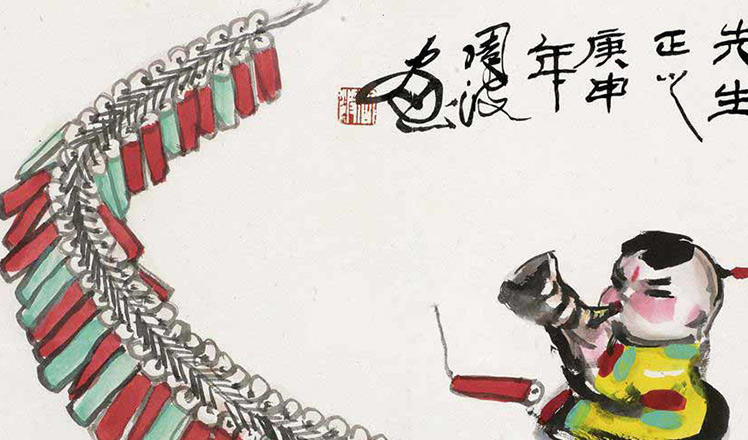
 Spring Festival in the eyes of Chinese painters
Spring Festival in the eyes of Chinese painters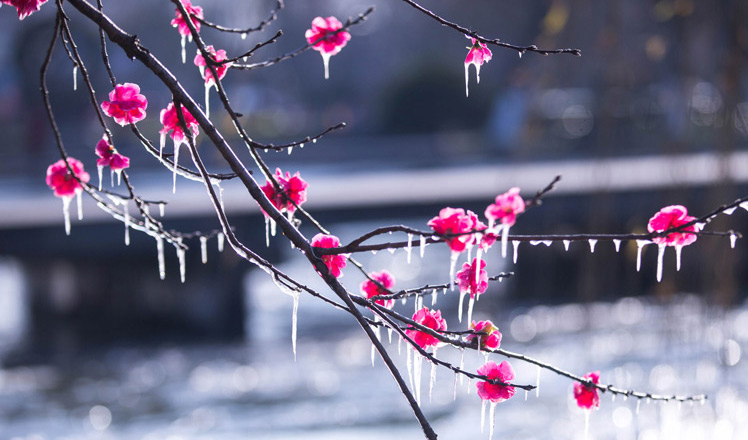
 Cold snap brings joy and beauty to south China
Cold snap brings joy and beauty to south China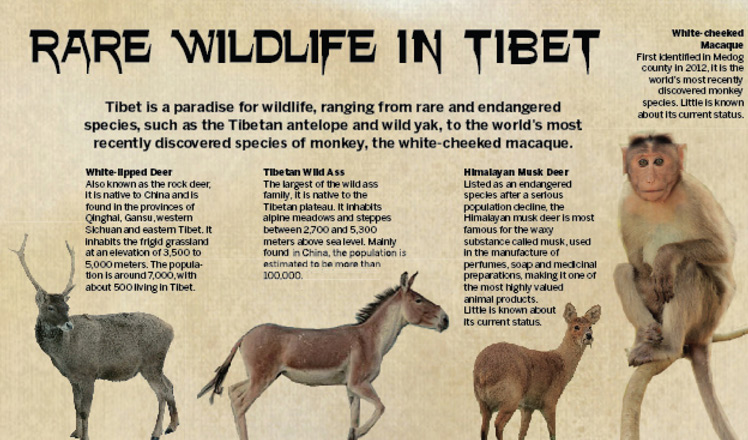
 The making of China Daily's Tibetan-style English font
The making of China Daily's Tibetan-style English font
 First trains of Spring Festival travel depart around China
First trains of Spring Festival travel depart around China
 Dough figurines of Monkey King welcome the New Year
Dough figurines of Monkey King welcome the New Year
 Ning Zetao, Liu Hong named China's athletes of the year
Ning Zetao, Liu Hong named China's athletes of the year
Most Viewed
Editor's Picks

|

|

|

|

|

|
Today's Top News
National Art Museum showing 400 puppets in new exhibition
Finest Chinese porcelains expected to fetch over $28 million
Monkey portraits by Chinese ink painting masters
Beijing's movie fans in for new experience
Obama to deliver final State of the Union speech
Shooting rampage at US social services agency leaves 14 dead
Chinese bargain hunters are changing the retail game
Chinese president arrives in Turkey for G20 summit
US Weekly

|

|







